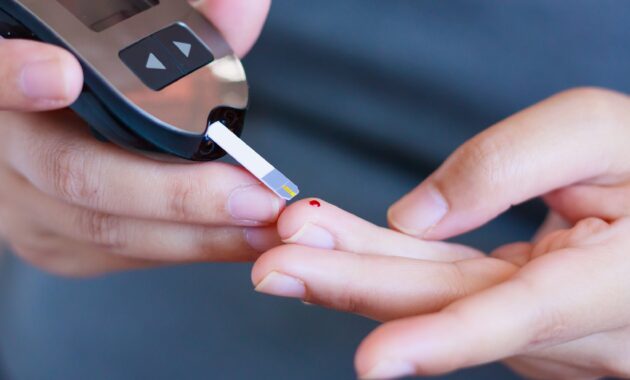Diabetes is more than just numbers on a test. It is a complex medical condition that can impact every aspect of a person’s health. When your fasting blood sugar crosses 100mg/dL or your blood sugar after meals goes over 140mg/dL, diabetes starts to knock on your body’s door. This is the time to be cautious and take precautionary steps to avoid serious side effects of diabetes.
What is diabetes?
Diabetes is a chronic health problem that occurs due to lack of production or consumption of insulin, the hormone that is responsible for regulating blood glucose. This condition may be caused by genetic or environmental factors. Better lifestyle habits can mitigate the impact of diabetes on the body.
What are the serious side effects of diabetes?
Just like we pay attention to heart diseases and blood pressure, managing diabetes is equally important. In fact, it is often the underlying cause for many metabolic disorders. From the strands of your hair to the tips of your toenails, diabetes can silently affect your tissues, muscles in-short your whole-body parts. It’s not just about blood sugar. It is about a domino effect that can lead to various health issues.
Health Shots reached out to Dr Tribhuvan Gulati of the CK Birla Hospital (R), Delhi, to know the side effects of diabetes on overall health.

1. Hair loss
Hair loss and hair thinning are considered symptoms of both type 1 and type 2 diabetes. High glucose levels can increase the risk of hair loss, since the condition impacts blood circulation that further affects hair follicles from functioning normally. Some Type 1 diabetes patients can even be susceptible to autoimmune disorder Alopecia Areata that causes hair fall.
2. Skin changes
Yes, diabetes can affect even your skin. According to the US Centers for Disease Control and Prevention, high blood sugar levels will usually lead to skin changes. From patches and spots to blisters and bumps, there are almost 10 different skin conditions that diabetes can cause. Your risk of bacterial and fungal infections that may lead to dry and itchy skin can also rise.
3. Eye troubles
Diabetes patients are at a higher risk of retinopathy and early cataracts, says Dr Gulati. As per the National Institute of Health, one of the long-term effects of diabetes is that it can even cause eye-related problems such as diabetic macular edema and glaucoma. Serious cases can turn into poor vision or even blindness.
Select Topics of your interest and let us customize your feed.
PERSONALISE NOW
4. Mouth problems
That’s right! Patients with diabetes are exposed to the development of oral fungal and bacterial infections. This is due to decreased salivary flow rate and the absence of its antimicrobial effects. A compromised defense mechanism also plays spoilsport. Dr Gulati says patients may experience conditions such as stomatitis and glossitis, involving inflammation and difficulty in eating.
5. Immune system
Your immune system is important for your overall health. When you suffer high blood sugar levels, it puts additional stress on the white blood cells of the immune system. This makes patients more likely to fall prey to conditions such as pneumonia, urinary tract infections and more.
6. Serious health conditions
Uncontrolled diabetes can pave the way for severe complications such as heart attacks, kidney failures, and non-alcoholic fatty liver disease, all of which can have a profound impact on your well-being, says Dr Gulati.
Also read: How to keep diabetes under control for your heart’s sake

7. Sexual health
This is one of the important aspects of the side effects of diabetes that aren’t always openly discussed like sexual health. The expert says that when it comes to diabetes patients, their sexual health can also suffer, leading to issues such as erectile dysfunction and premature ejaculation in men. To know how diabetes affects sexual health in women, click here.
8. Musculoskeletal system
Weak muscles in your legs and fragile bones are common consequences, potentially progressing towards osteopenia and osteoporosis. It is often observed that a patient suffering from diabetes has thinner hands and legs while the body seems heavier. The gradual weakening of muscles due to diabetes plays a role.
Learn to manage diabetes effectively
Managing diabetes isn’t just about controlling sugar levels. It’s about safeguarding the very foundation of an individual’s body. It’s about taking proactive steps to prevent damage to the organs and tissues. By maintaining healthy sugar levels, a person is not only preventing immediate issues but also fortifying the muscles, bones, skin, eyes, heart, lungs, kidneys, and liver against future threats.
It is important to remember that diabetes is a call to take action and a chance to protect one’s body from harm’s way.
#side #effects #diabetes #health
